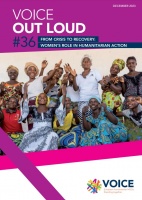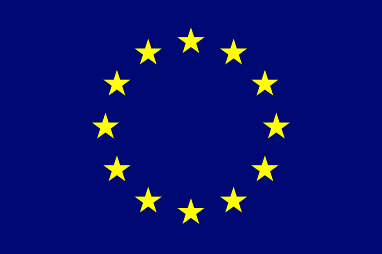VOICE Out Loud 36 'From crisis to recovery: women's role in humanitarian action'

The new VOICE Out Loud “From crisis to recovery: women's role in humanitarian action” highlights the experiences of women and girls in humanitarian emergencies. The articles demonstrate the struggles of women and girls, but also celebrate their resilience, emphasising the necessity of positioning them as pivotal agents of their own recovery.
Addressing Gender-Based Violence (GBV) during emergencies, particularly evident in conflict-stricken places like DRC, is critical. Fida International stresses the urgent need for advocacy aimed at the prevention and mitigation of GBV in this kind of contexts. In a similar vein, Relief International champions survivor-centred approaches, highlighting the importance of creating safe spaces and robust support systems to counter gender-specific vulnerabilities, especially during displacement. The article from Mercy Corps draws attention to the pressing need for inclusive recovery strategies in the face of the escalating climate crisis. It emphasises the need to build resilience and integrate gender perspectives into recovery efforts. CARE International emphasises the need for a comprehensive approach to humanitarian aid, considering gender dynamics across various aspects of life. Their Theory of Change prioritises women’s voices and leadership in emergencies, gender-based violence in emergencies, and gender-integrated responses. In line with this, the speakers of the VOICE event in June 2023, “Fighting hunger: a women-led response”, recognise women’s historical leadership in addressing global food crises.
As we navigate these turbulent times where women are even banned from working in national and international NGOs – such as in Afghanistan, as shown in the interview with a female Afghan aid worker- it is more crucial than ever that we do not overlook the experiences of women and girls. The article in our “A closer look” section focuses on the work of WeWorld Onlus in Gaza, where the conflict exacerbated the humanitarian crisis in a context where the population has nowhere to escape.

